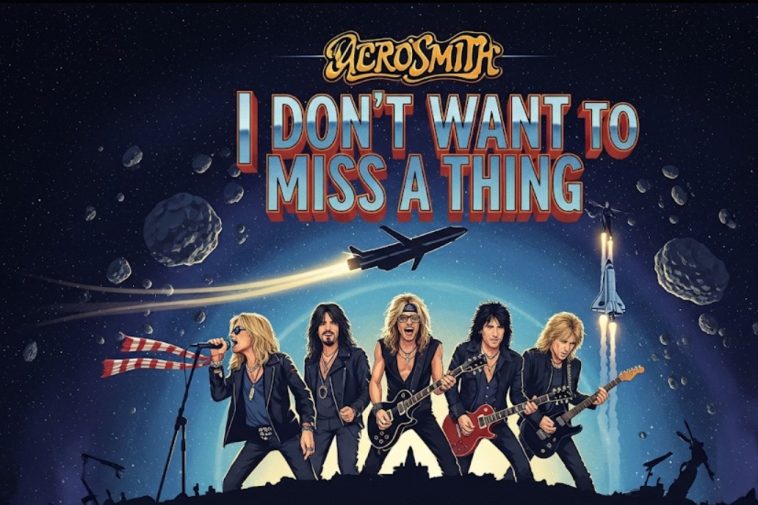When we talk about rock legends, Aerosmith almost always finds its way into the conversation. Known for Steven Tyler’s electrifying stage presence, Joe Perry’s iconic guitar riffs, and decades of chart dominance, Aerosmith are considered one of America’s most successful rock exports. But surprisingly, despite selling more than 150 million records worldwide and influencing generations of musicians, the band only managed to achieve one number-one hit on the Billboard Hot 100 in their entire career.
So why did Aerosmith—“the Bad Boys from Boston”—manage to dominate arenas, MTV, and pop culture for decades, but still fall short of topping the charts more than once?
From Blues Rock to Mainstream Success
Aerosmith began in the early 1970s as a gritty blues-based rock outfit. Critics often dismissed them as “America’s Rolling Stones,” but by the mid-to-late ’70s, their raw energy, Tyler’s unmistakable vocals, and songs like Sweet Emotion, Dream On, and Walk This Way made them household names.
However, the turn of the decade brought challenges. The late ’70s and early ’80s were marked by drug abuse, internal feuds, and fading commercial momentum. By 1985, Aerosmith were in danger of becoming irrelevant.
The Run-DMC Collaboration That Saved Their Career
Their career revival came unexpectedly in 1986, when rap pioneers Run-DMC re-recorded Walk This Way with Tyler and Perry. Initially hesitant, Aerosmith took the risk—and the gamble paid off. The collaboration not only reintroduced Aerosmith to a younger audience but also pioneered the crossover between rock and hip-hop, a move that reshaped music history.
The song’s success pushed Aerosmith back into the charts and opened the door for their late ’80s comeback.
Songwriters Enter the Picture
In the late ’80s, Aerosmith did something they had long resisted: allowing professional outside songwriters to contribute. Collaborators like Desmond Child and Jim Vallance helped craft radio-friendly hits such as Dude (Looks Like a Lady) and Rag Doll.
By 1989, hits like Love in an Elevator and Janie’s Got a Gun cemented their status as arena rock kings. But increasingly, their chart-topping potential was tied to outside contributions, leading to the softer, emotional ballads of the 1990s (Crazy, Cryin’, Amazing).
The Armageddon Moment
In 1998, everything changed when Aerosmith recorded I Don’t Want to Miss a Thing for the blockbuster film Armageddon, starring Steven Tyler’s daughter, Liv Tyler.
The song, written by Diane Warren—one of the most successful songwriters in pop history—was not initially intended for a rock band. Warren envisioned a diva like Celine Dion to perform it. But Aerosmith saw the opportunity.
The result? A power ballad unlike anything they had recorded before. Stripped of their gritty rock image, Aerosmith embraced sentimentality, and it worked. I Don’t Want to Miss a Thing became their first and only number-one single, staying atop the Billboard Hot 100 for four consecutive weeks and topping charts worldwide.
The Aftermath of Success
While the song was a massive success, it marked the peak of their commercial journey. By the early 2000s, Aerosmith’s presence in the charts dwindled. Their last major hit, Jaded, arrived in 2001. Later singles failed to make an impact, and the band shifted its focus toward touring rather than chasing radio play.
Despite never replicating that number-one success, Aerosmith’s legacy remained intact. Their induction into the Rock & Roll Hall of Fame in 2001, sold-out world tours, and enduring fanbase prove that chart numbers aren’t everything.
Why Only One Number One?
The answer lies in Aerosmith’s identity. They thrived as a rock band first, often resisting the glossy, formula-driven pop formulas that dominate charts. Ironically, when they finally surrendered to that formula—through Diane Warren’s I Don’t Want to Miss a Thing—they achieved chart glory.
But for Aerosmith, longevity and cultural relevance mattered more than topping the charts. Their catalog of anthems ensures that while they may only have one number-one single, they remain one of the most influential bands in rock history.

